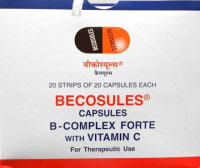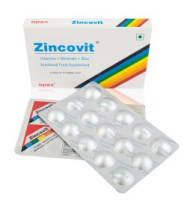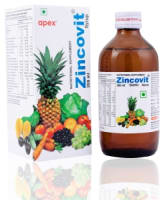USED FOR:
Allergic disorders
Bacterial infections
Asthma
COMPOSITION:
Fluticasone Topical (0.05%)
Mupirocin Topical (2%)
Therapeutic Uses:
derma

No interaction found

WEIGH RISKS VS BENEFITS
Mupricon FM Ointment may be unsafe to use during pregnancy.Animal studies have shown adverse effects on the foetus, however, there are limited human studies. The benefits from use in pregnant women may be acceptable despite the risk. Please consult your doctor.

Mupricon FM Ointment is probably safe to use during lactation. Limited human data suggests that the drug does not represent a significant risk to the baby.The baby's skin should not come into direct contact with the treated area of skin. Water-miscible cream/gel is preferred as ointments may expose the baby to harmful effects of Mupricon FM Ointment via licking.

It is not known whether Mupricon FM Ointment alters the ability to drive. Do not drive if you experience any symptoms that affect your ability to concentrate and react.

Mupricon FM Ointment is probably safe to use in patients with kidney disease. Limited data available suggests that dose adjustment of Mupricon FM Ointment may not be needed in these patients. Please consult your doctor.

Mupricon FM Ointment is probably safe to use in patients with liver disease. Limited data available suggests that dose adjustment of Mupricon FM Ointment may not be needed in these patients. Please consult your doctor.
Uses of Fluticasone Topical
Fluticasone Topical is used in the treatment of allergic disorders and asthma.
How to use Fluticasone Topical
This medicine is for external use only. Use it in the dose and duration as advised by your doctor. Check the label for directions before use. Clean and dry the affected area and gently massage the ointment. Wash your hands after applying, unless hands are the affected area.
How Mupricon FM Ointment works
Fluticasone Topical is a corticosteroid. It acts by stopping the release of certain natural substances in the body that are responsible for inflammation.
Common Throat irritation, Hoarseness of voice, Cough.
Expert advice for Fluticasone Topical
Fluticasone Topical ‘dampens down’ inflammation in the lungs to provide long-term (maintenance) treatment of asthma and prevent disease progression. Fluticasone Topical will not work for an ongoing asthma attack. Use your rescue inhaler to control sudden difficulty in breathing. Learn the correct technique of using metered dose inhalers (MDI) and dry powder inhalers (DPI) to ensure that the right amount of medication reaches your lungs, and side effects are minimized. Gargle with warm water after each inhalation to avoid any fungal infections in your mouth and throat. Take it at the same time every day to prevent asthma attacks. Do not open and close the cover unnecessarily as you will lose the medicine. Never breathe out into the mouthpiece. Only minuscule amounts of Fluticasone Topical may get absorbed into the bloodstream after inhalation. Hence, serious side effects such or weight gain are unlikely.
Q. Is fluticasone an antibiotic/steroid/anti-histaminic/anti-cholinergic drug?
Fluticasone is a steroid but not an antibiotic/anti-histaminic/anti-cholinergic/decongestant drug. It is used to treat nasal congestion (decongestant) and other symptoms caused by allergies or conditions like asthma
Q. Does it contain sulfa?
It does not contain sulfa
Q. Is Fluticasone the same as Nasonex/Flonase?
Fluticasone is also available in the branded form as Flonase nasal spray. However, Nasonex consists of another drug called Mometasone also used for treating nasal allergies
Q. Is Fluticasone safe?
Yes. Fluticasone is relatively safe if used as recommended. In case of any side-effects, consult your doctor
Q. Is it used in infants?
It is used for skin allergies in children or infants. Please consult your doctor before use
Q. What is used for?
Fluticasone (nasal drop, nasal spray) is used to treat nasal inflammation such as coughing, wheezing, blocked nose, runny nose. It is also used as topical cream to treat various skin allergies and infections
Q. Is fluticasone used for cold?
It is not used for common cold
Q. Does fluticasone propionate cause drowsiness/wakefulness?
Fluticasone may cause drowsiness or wakefulness. If you experience any such symptoms, please consult your doctor
Q. Is fluticasone addictive?
No. Fluticasone is not an addictive or a controlled/banned substance
Q. Does fluticasone cause nose bleeds?
Yes. The most common and expected side-effect of fluticasone nasal spray/inhaler is nose bleeding. If your bleeding does not stop, please consult your doctor
Q. Can I take fluticasone if I have high blood pressure?
It is advisable to consult your doctor before taking fluticasone if you have high blood pressure.
Uses of Mupirocin Topical
Mupirocin Topical is used in the treatment of bacterial infections.
How to use Mupirocin Topical
This medicine is for external use only. Use it in the dose and duration as advised by your doctor. Check the label for directions before use. Clean and dry the affected area and gently massage the ointment. Wash your hands after applying, unless hands are the affected area.
How Mupricon FM Ointment works
Mupirocin Topical is an antibiotic. It works by killing the bacteria that cause infections.
Common Application site irritation, Burning sensation, Rash, Itching.
Expert advice for Mupirocin Topical
Avoid direct contact of cream with your eyes. In case of direct contact, wash your eyes with water immediately and seek immediate medical attention.
Tell your doctor if you are pregnant, planning to become pregnant or are breastfeeding
Patients allergic to mupirocin or any of its ingredients.
Q. What is Mupirocin Topical used for?
Mupirocin Topical is indicated for the treatment of secondarily infected traumatic lesions like abrasions, sutured wounds and small lacerations with susceptible strains of Staphylococcus aureus and Streptococcus pyogenes.
Q. Is Mupirocin Topical good for acne?
Mupirocin Topical is not indicated for the treatment of acne.
Q. Is Mupirocin Topical used for fungal (yeast) infections and viral (herpes or ringworm)?
Mupirocin Topical is used to treat bacterial skin infections and does not act against fungal (yeast) and viral (herpes or ringworm) infections.
Q. Is Mupirocin Topical used for diaper rash?
Mupirocin Topical is an antibacterial and will only help if the diaper rash is associated with bacterial infection. Please consult your doctor before using this for an infected diaper rash.
Q. Does Mupirocin Topical treat eczema?
Mupirocin Topical is not indicated for the treatment of eczema but can be used in case eczema is associated with infection. Please consult your doctor before using mupirocin in this condition, as eczema should be diagnosed by a doctor before it is being treated.
Q. Does Mupirocin Topical clog pores?
No. Mupirocin Topical does not clog pores.
Q. Is Mupirocin Topical used to stop itching?
No. Mupirocin Topical is not indicated to relieve itching. Its indicated for the treatment of infections. If there is itching because of the underlying infection, then itching may subside when the infection is treated.
Q. Is Mupirocin Topical a topical steroid?
No, Mupirocin Topical is not a topical steroid.


 Mupricon FM Ointment
Mupricon FM Ointment  Bookmark
Bookmark





















